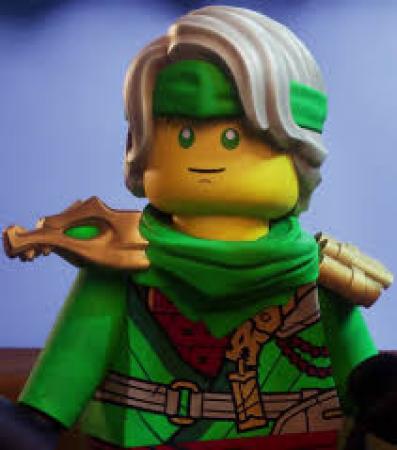The first time Ammar Sabbah decided to run 250 kilometers through the Sahara Desert, it wasn’t for recognition—it was purely for enjoyment. “I love the desert and I love camping,” says the Abu Dhabi-based ultra-runner. “So when I learned about the Marathon des Sables—a 250km self-supported race where you sleep in tents and carry everything on your back—I thought, why not?”
That casual “why not” evolved into a deep passion, resulting in nine completions of what’s considered the toughest footrace in the world—with a tenth potentially on the way. Now 57 years old, Sabbah talks about running the way others describe meditation or faith. In fact, he says running has brought him closer to both life and death than he ever anticipated. “It saved my life,” he says. “Twice.”
Running into the Void — and Finding Clarity
The Marathon des Sables is far from an ordinary race. Held in Morocco, it’s a week-long ultra-marathon through blistering heat and dunes, with runners carrying all their food and gear. “You get water stations. That’s it,” Sabbah explains. “Everything else—sleeping bag, food, safety gear—you carry yourself. It’s not just physical. It’s mental. Emotional. Spiritual.”
During the longer stages, Sabbah says he sometimes enters a trance-like state. “Your mind drifts. I’ve had full conversations with people who are no longer alive—my late mother, my uncle. Sometimes it feels like I’m dreaming with my eyes open.” These moments also spark his creativity. “I love writing. I come up with poems, even business ideas. They just flow while I run. Some I remember. Some disappear into the sand.”
Desert Highs and Near-Death Lows
Sabbah isn’t in it to win. “I never aimed to win,” he says. “My goal was just to make the top 150 once. My best was 242 out of 1,200 participants. And I was thrilled.” Despite years of racing in places like Oman, Jordan, and Morocco, something started to feel wrong. “In 2016, I realized I wasn’t improving anymore. Maybe it was age. Maybe it was my ACL tear. I just couldn’t get faster.”
Then came the Al Marmoom Ultra Marathon in Dubai—another 250km event. Sabbah hadn’t planned on entering, but the organizer reached out to him personally. “He said, ‘How can we not invite the guy with the most desert ultras in the UAE?’ So I said yes.”
To enter, he needed a cardiologist’s clearance. Sabbah wasn’t concerned. “I’d just done a 100km race in Jordan and felt fine.” But during the test, the doctor paused. Something wasn’t right. “He said, ‘I don’t think I can let you run.’ Turns out, I had over 90% blockage in a major artery. I was one heartbeat away from collapse.” Emergency surgery followed. “I went from being ‘fit’ to almost dead, just like that. Running saved my life for the first time.”
Training: Balancing Sand and City Life
Sabbah never believed in excessive training. “My daily runs are short—never over 10km. Weekends maybe 30km. Before a big race, we’d do a five-day desert camp: run in the morning, rest, then run again at sunset.” After moving to Dubai in 2014, he trained near Al Marmoom, squeezing runs into breaks between office meetings. “I’d go out for 45 minutes in the sand and then head back to work.”
Now living in Abu Dhabi, he drives to Al Wathba’s artificial mountain area to train. “You can still find good sand, gravel, and uphill paths. But you’re training your mind more than your legs.” Still, Sabbah admits he sometimes overtrained. “Some years, I’d do two or three ultra races per season. I remember doing Oman, then Morocco just three weeks apart. That wasn’t smart.”
The Second Scare — A Valve Nearly Ended It All
Years after his first operation, Sabbah noticed the same decline. “I wasn’t improving. I felt tired again. Something was off.” A second opinion confirmed his fears: while the stent was fine, his aortic valve was calcifying. It was functioning at just 20 to 25 percent capacity—far below what’s needed.
In September 2023, Sabbah underwent open-heart surgery to replace the valve. “I told my doctor, let’s just get it done. I don’t want to watch my performance decline bit by bit. Let’s fix it right.” Almost exactly a year later, he returned to Jordan to run a 250km trail race through Petra and Wadi Rum. “It wasn’t my best time—I was still recovering. But emotionally? It meant everything. The memories. The peace. The people asking where I’d been. It felt like coming home.”
No Carbs, No Gels — Just Grit and Fat-Burning
As a clinical nutritionist, Sabbah has re-evaluated endurance fueling. “For years, we followed the high-carb model: energy gels, carb-loading. But I’ve switched to low-carb. No sugar. No gels. Straight fat-burning.” He’s cautious, though.
“I’m not fully keto. And I think the new trends may just be the same mistake in reverse. But this works for me.” With degrees in biochemistry, clinical nutrition, and exercise physiology, Sabbah stresses individual differences. “Everyone’s body is different. You have to figure out what works for you.”
Now the owner of Arena Fitness in Abu Dhabi, Sabbah combines his vast ultra-running experience with scientific knowledge in nutrition and exercise. But he warns against romanticizing hardship.
“We’ve glamorized overachievement. But if you’re doing ultras just to boost your LinkedIn—don’t. That’s not the point.” His advice? “Only do it if you love it. If the passion isn’t there, the pain won’t be worth it. But if you truly love it—it’s the most beautiful experience you can have.” And if he’s not feeling it? “I don’t run. I haven’t run in six weeks,” he laughs. “My mind’s busy with business. I’ll come back to it when I’m ready.”
What’s Next?
When asked about his next challenge, Sabbah hasn’t decided yet. But Morocco is calling. “I want my tenth Marathon des Sables. It would be the race’s 40th anniversary. I’m not sure I’m ready… but I might just go anyway.”

